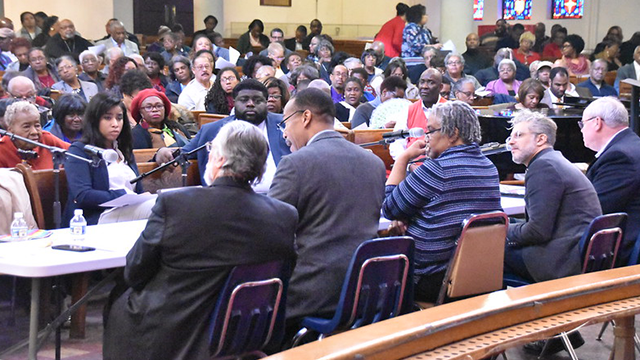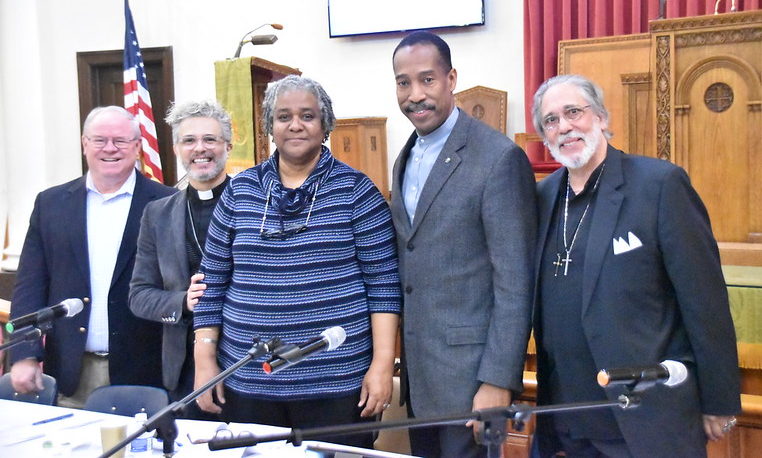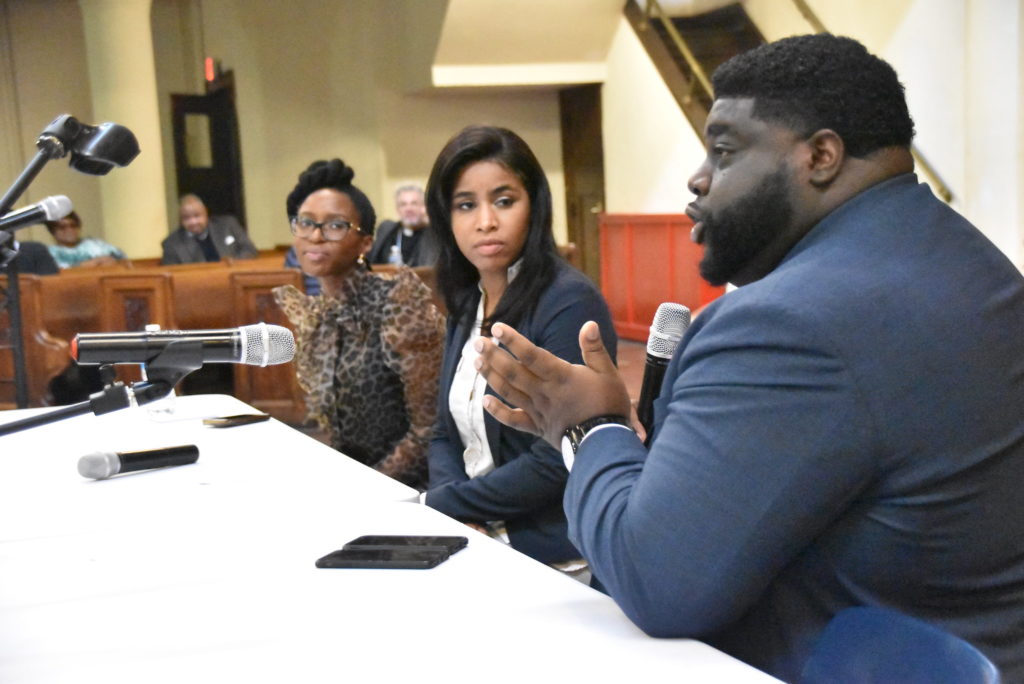
By John W. Coleman
More than 600 African American United Methodists from around the Northeastern Jurisdiction convened Jan. 11 in Philadelphia to learn about controversial changes being proposed to the denomination’s 2020 legislative General Conference (GC2020). Now, more such events are planned for February and March.
The January 11 meeting at historic Tindley Temple UMC came about a week after a major church restructuring proposal was released. That negotiated proposal would divide the church along theological lines, and lead to the departure of many members and churches with traditional beliefs who refuse to change the UMC’s current prohibition against same-sex weddings and “self-avowed practicing” gay clergy.
The gathering—which was much larger than expected—heard the Rev. Keith Boyette, president of the traditionalist Wesley Covenant Association, describe the new Protocol of Reconciliation & Grace Through Separation, which he helped forge and cosigned. It was made public Jan. 3, after months of secret negotiations among a diverse, 16-member group of United Methodist bishops and other leaders.

The proposal, which includes hard-won compromises from all sides—traditionalists, moderate centrists and progressives—is being drafted as a legislative petition to be considered by GC2020 (May 5-15), along with other plans already submitted.
Two other panelists—the Revs. Alex da Silva Souto and Althea Spencer-Miller, both of the progressive UM-Forward Coalition—described the New Expressions Worldwide (N.E.W.) Plan that demands full, universal rights for LGBTQ members and repentance for long-term discrimination against them and against people of color. The UM-Forward Coalition, which calls for dissolution of the UMC, was not a part of the Protocol and objects to its goals and process.
Two other major plans, “New Denominations of Methodism,” also known as the Indianapolis Plan, and “Next Generation UMC” from the UMCNext group, were not presented. But leaders of both plans were part of the negotiations that produced the new, collaborative Protocol.
The Revs. Steve Tillett and H. Ward Greer discussed two petitions that call for debt-forgiveness, reparations and freedom for black churches to disaffiliate from the denomination, with no penalties or payments. Some black church leaders reportedly are exploring possibilities of becoming independent or forming a new denomination.
The lengthy Jubilee Freedom Today petition was submitted to GC2020 in September by the Rev. Fred Allen, recently retired director of the Strengthening the Black Church for the 21st Century (SBC-21) initiative. Allen had convened discussions by black leaders across the church in 2019.
Greer submitted a second, related petition, the Moving Forward/Black Church Disaffiliation Option. It envisions 25 or more black churches creating a “new expression of black Methodism” by December 2024, while retaining church assets and forming their own structure, discipline and apportionment system.
“The perceived or public conversation is that the fundamental issue is that of human sexuality” said Greer, who challenged the church to instead focus on its unfinished struggle with racism. “While that may have bought us to this juncture, the core issue for many of us is not your sex or your sexuality; it is the sin of racism, white privilege and white supremacy.”
Time limits restricted all the panelists to brief, morning descriptions of their proposals, followed by an afternoon question and answer session. The six-hour program began with praise music and a presentation by Dale Jones, a Wespath consultant, on how the benefits agency plans to manage clergy pensions depending on which of the various plans may be approved.

A panel of young adult leaders also spoke to the assembly about how the denomination addresses—or fails to address—their generational needs and concerns now and in the future.
“We as Black United Methodist leaders must be prepared and knowledgeable about the possible changes that may impact our churches,” said the Rev. Dennis Blackwell, a New Jersey pastor who led coordination of the listening session. He also serves on the UMC’s Judicial Council. “We need wise, informed, prayerful leadership and participation.”
Blackwell offered the crowd some ideas for next steps. He urged them to gather and broadly share information, including online links to the various plans. He further encouraged attendees to convene conversations about human sexuality in the black church and about new, alternative expressions of Black Methodism.
He also advocated for more black clergy and laity strategy discussions before and after General Conference. Several discussions are reportedly being planned now, including: one at Queens Chapel UMC in Beltsville, Md., Feb. 4; another at Bethany UMC in New Orleans, La., Feb. 13; and others in Houston, Texas; and Atlanta, Ga. (March 25-28)
The Black Methodists for Church Renewal national black caucus also plans to hold discussions again at its General Meeting, March 4-7, in Kansas City, Mo. BMCR, black members of the Council of Bishops and other groups held GC2020 discussions in 2019.
View photos from the Jan. 11 meeting of NEJ black church leaders on our Flickr page.
